
Summary
| Abbreviation | Course/Module/Activity name | # of certificates |
| QCourse101-1 | Fundamentals of Quantum Computing & Programming | 175 |
| QCourse104-1 | Introduction to Quantum Algorithms | 48 |
| QCourse501-1 | Elements of Quantum Computing and Programming | 227 |
| QCourse504-1 | Elementary Quantum Algorithms | 107 |
| QMercury2 | Quantum Key Distribution | 55 |
| QZinc2 | Quantum Error Correction | 65 |
| QCobalt4 | Quantum Annealing | 48 |
| QTitanium1 | Topological Quantum Computing | 64 |
| QJam2024 | Making Quantum Games | 28 |
| QMini2 | Quantum Machine Learning Mini Challenge | 9 |
| QTypo1 | Finding typo challenge on “Introduction to Classical and Quantum Computing” [1e4p] by Thomas G. Wong Winners: Risav Pokhrel & Maja L Honorable mentions: Paula Onuoha, Christos Koromilas, & an anonymous student | 5 |
| 831 |
Team
Coordinator of QCourses: Claudia Zendejas-Morales (QWorld)
Coordinator of self-study modules: Jibran Rashid (QWorld)
Coordinator of QClass: Abuzer Yakaryilmaz (QWorld & University of Latvia)
Lecturers: Abuzer Yakaryilmaz, Jibran Rashid, Abdullah Khalid (QWorld), Claudia Zendejas-Morales
Lab Assistants: Rumlah Amer (QPakistan), Kenneth Isamade (QWorld), Thembelihle Rose Dlamini, and Viktor Olejar (QSlovakia)
Mentors: Denisa Vítková, Maja L., Rumlah Amer, Viktor Olejar, Kenneth Isamade, and Thembelihle Rose Dlamini
Discord: Denisa Vítková (QWorld) and Claudia Zendejas-Morales
Canvas: Abdullah Khalid and Claudia Zendejas-Morales
Self-study leaders:
Quantum Key Distribution: Aeysha Khalique (QPakistan), with mentoring by Sabah Ud Din Ahmad (QPakistan)
Quantum Error Correction: Abdullah Khalid (QWorld)
Quantum Annealing: Hüseyin Türker (QTurkey)
Topological Quantum Computing: Abdellah Tounsi (CQTech)
Classiq module: Nadav Ben-Ami (Classiq)
QJam2024: Abuzer Yakaryilmaz, Claudia Zendejas-Morales, with support of Maja L.
QML: Cenk Tüysüz (Deutsches Elektronen-Synchrotron & Humboldt-Universität zu Berlin), Abuzer Yakaryilmaz, with support of Abdellah Tounsi
QTypo1: Abuzer Yakaryilmaz and Maksims Dimitrijevs (QWorld)
Contact: QClass [at] qworld.net
QClass23/24 Page
Welcome to our two-semester long QClass23/24 from Sep 2023 to May 2024. Throughout our QClass, we will deliver (i) two introductory courses on quantum computing, programming, and algorithms, (ii) four intermediate level self-study modules on different quantum topics, (iii) one QJam on quantum games, and (iv) several online talks. Based on partnerships, we will organize more activities.
Before filling out the application form, READ every detail here!
Our QClass is fully virtual and free, but the registration is mandatory. All tutorials will be open-sourced and publicly available. Starting from high school (not younger than 14 years old) all students as well as graduated people are welcome to apply for joining QClass23/24. We plan to accept around 1000 students.
We will review programming with Python and basic trigonometry & liner algebra at the beginning of class, which are the only prerequisites to follow our content.
Jump to the schedule for Spring2024 >>
Partners
We conduct QClass23/24 in a collaboration with Faculty of Computing, University of Latvia.
Main partners: Classiq, Unitary Fund, Latvian Quantum Initiative, Quantum AI Foundation
Partners: AWS, Xanadu, Quantum Game Jam 2023
Local partners: Institute of Business Administration (Karachi), CQTech (Algeria)
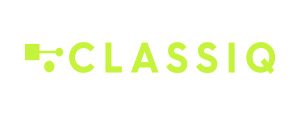
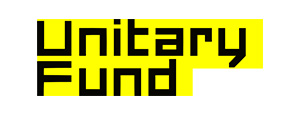
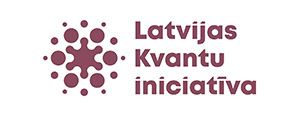
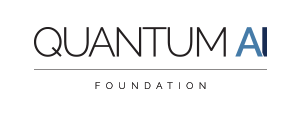


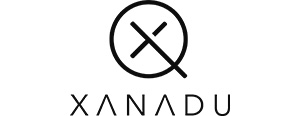
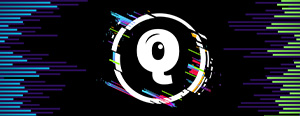
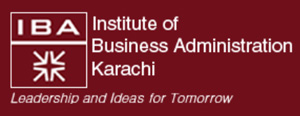
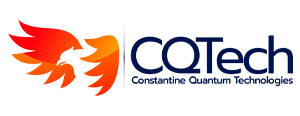

We are looking for program partners & sponsors (check details)!
Main program
We have an introductory level course in each semester. Additionally, in Autumn, we will have one self-study module & QJam2023; and, in Spring, we will have three self-study modules. There will be a separate certificate for each of them. There could be still some changes in the program.
- QCourse101-1: Fundamentals of Quantum Computing & Programming
3 ECTS, undergraduate level, 14 weeks from Sep 11 to Dec 17- Review of python, mathematics, & quantum mechanics.
- Basics of classical and quantum systems. Superposition & measurement. Operations on real-valued qubits.
- Entanglement, superdense coding, and quantum teleportation.
- Bloch sphere and complexed-valued quantum operators.
Hands-on Quantum Algorithms Development with Classiq
Certified mini workshop, the details will be shared on the QClass23/24 discord server.- Self-study module “Quantum Key Distribution”, 4 weeks in Dec & Jan
- QJam2024 “Making Quantum Games”, ≈ 6 weeks in Dec & Jan
- QTypo1 challenge
- QMini2 “QML challenge”
- QCourse104-1: Introduction to Quantum Algorithms
3 ECTS, undergraduate level, 13 weeks from Feb 5 to May 5- Classical gates.
- Conventional quantum algorithms: Deutsch Algorithm, Deutsch-Jozsa Algorithm, Bernstein-Vazirani Algorithm, Simon’s Algorithm.
- Grover’s search algorithm & Solving Max-Cut problem using Grover’s Search.
- Quantum Fourier Transform & phase estimation.
- Shor’s algorithm.
- Self-study module “Quantum Error Correction”, 4 weeks in May
- Self-study module “Quantum Annealing”, 4 weeks in May
- Self-study module “Topological Quantum Computing”, 4 weeks in May
- Self-study module “Quantum Software Development Journey: From Theory to Application with Classiq”, 4 weeks in May
By using your two highest scored self-study modules, you can get a certificate for undergraduate level course: QCourse480-1: Individual studies in quantum computing (3 ECTS). Then, you will not get certificate for these two self-study modules.
If you are interested in getting graduate level course certificates:
- QCourse501-1: Elements of Quantum Computing and Programming (3 ECTS, graduate level)
70% of your score in QCourse101-1 & 30% of your score for QKD
Then, you will not get certificate for QCourse101-1 or QKD. - QCourse504-1: Elementary Quantum Algorithms (3 ECTS, graduate level)
70% of your score in QCourse104-1 & 30% of your highest scored of self-study module in Spring 2024
Then, you will not get certificate for QCourse104-1 or that self-study module in Spring 2024.
QCourses are linked to actual courses:
- QCourse101-1 & QCourse104-1
QCourse480-1are linked to the undergraduate third year special seminar courses at the Faculty of Computing, University of Latvia - QCourse501-1 & QCourse504-1 are linked to the graduate courses at the Faculty of Computing, University of Latvia
Remark that you can get credits only from the programs you are officially enrolled. So, you should communicate with your program advisor if they could give credits from our QCourses or activities. You can refer them this page for the details of QCourses.
Tutorials
For the lectures, we use QBook101, based on QWorld’s tutorials Bronze-Qiskit, Nickel, and Silver.
For each self-module, there will be a separate tutorial shared before their delivery time.
Details
The online lectures will be held at 18:00-20:00 (Latvia) on Mondays, and the online labs will be held at at 18:00-20:00 (Latvia) on Wednesdays.
To pass each QCourse, you must collect at least 39.50 out of 100 points.
- For QCourse101-1 & QCourse104-1:
- There will be 4-6 online quizzes, which one can attempt up to three times.
- There will be one online exam, which one can attempt once. But, there will be a trial online exam before the main exam, which one can attempt up to three times.
- Your final grade will be specified on your QCourse certificate. The main topic titles will also be listed on your QCourse certificate.
To get a certificate from a self-study module, you must collect at least 60 points out of 100 points.
- Similar to QWorld’s workshop’s certificate, there will be no grade on these certificates.
For any other activity, the details will be shared later.
We follow a strict deadline policy.
Attendance to the lectures or labs is not mandatory, and the students can access class materials asynchronous. However, we highly recommend each student attend the online lectures and labs, be active in the class server, and synchronized with the course schedule.
Self-study modules in Spring2024 – schedule and details
This phase starts on May 6, 2024.
You can obtain certificates for the modules you decide (the ones with your highest score will be used for QCourse504 if you would like to obtain its certificate). The self-study modules available are:
- Quantum Annealing (QCobalt)
- Topological Quantum Computing (QTitanium)
- Quantum Error Correction (QZinc)
- Quantum Software Development Journey: From Theory to Application with Classiq
There will be live sessions so you can ask your questions. Please consider the session schedule for each module below (all indicated in Latvia time, UTC+3:00):
Q&A session regarding the self-study modules: Monday, May 6th 18:00 – 18:30
Live Q&A Sessions: Quantum Annealing (QCobalt):
- 18:30 – 19:00, Monday, May 6
- 19:00 – 19:30, Monday, May 13
- 18:30 – 19:00, Monday, May 20
- 18:30 – 19:00, Monday, May 27
Topological Quantum Computing (QTitanium)
- 17:00 – 19:00, Monday, May 13
- 17:00 – 18:00, Monday, May 20
- 17:00 – 18:00, Monday, May 27
Quantum Error Correction (QZinc)
- 18:30 – 19:30, Wednesday, May 8
- 18:30 – 19:30, Wednesday, May 15
- 18:30 – 19:30, Wednesday, May 22
- 18:30 – 19:30, Wednesday, May 29
Quantum Software Development Journey: From Theory to Application with Classiq
- 17:00 – 18:30, Wednesday, May 8
- 17:00 – 18:30, Wednesday, May 15
- 17:00 – 18:30, Wednesday, May 22
- 17:00 – 18:30, Wednesday, May 29
- All participants should do the following before the course:
- Sign up to Classiq at: https://platform.classiq.io/
- Join the Classiq Community, once in there, please join the dedicated channel for the course: #qcourse-self-study-module-2024 (join here: https://short.classiq.io/join-slack)
- Enter Classiq’s GitHub Library and give us a star⭐(https://github.com/Classiq/classiq-library)
Schedule for Spring semester
| # | Week | Activity |
| 1 | Feb 5 – Feb 11 | Classical Gates, Deutsch Algorithm, and Deutsch-Jozsa Algorithm |
| 2 | Feb 12 – Feb 18 | Online Quiz 1 (10%) |
| 3 | Feb 19 – Feb 25 | Introduction to Grover’s algorithm |
| 4 | Feb 26 – Mar 3 | Grover’s algorithm for Max-Cut Problem |
| 5 | Mar 4 – Mar 10 | Online Quiz 2 (20%) |
| 6 | Mar 11 – Mar 17 | Bernstein-Vazirani Algorithm and Simon’s Algorithm |
| 7 | Mar 18 – Mar 24 | Online Quiz 3 (10%) |
| 8 | Mar 25 – Mar 31 | Quantum Fourier Transform and Phase Estimation |
| 9 | Apr 1 – Apr 7 | Online Quiz 4 (15%) |
| 10 | Apr 8 – Apr 14 | Order Finding Algorithm and Shor’s Algorithm |
| 11 | Apr 15 – Apr 21 | Online Quiz 5 (15%) |
| 12 | Apr 22 – Apr 28 | Trial online exam |
| 13 | Apr 29 – May 5 | Online exam (30%) |
| 14 | May 6 – May 12 | Self-study modules (check the previous section) |
| 15 | May 13 – May 19 | Self-study modules (check the previous section) |
| 16 | May 20 – May 26 | Self-study modules (check the previous section) |
| 17 | May 27 – Jun 2 | Self-study modules (check the previous section) |
| 18 | Jun 3 – Jun 10 | Concluding Spring semester |
| 19 | June 11 – June 17 | Concluding Spring semester |
| 20 | Jun 18 – Jun 24 | Concluding Spring semester |
Schedule for Autumn semester
We have successfully completed Autumn semester.
| # | Week | Activity |
| 1 | Sep 11 – Sep 17 | Review of Python, math, and quantum mechanics |
| 2 | Sep 18 – Sep 24 | Online Quiz 1 (10%) |
| 3 | Sep 25 – Oct 1 | Basics of classical systems |
| 4 | Oct 2 – Oct 8 | Online Quiz 2 (10%) |
| 5 | Oct 9 – Oct 15 | Basics of quantum systems |
| 6 | Oct 16 – Oct 22 | Quantum operators on a real-valued qubits |
| 7 | Oct 23 – Oct 29 | Online Quiz 3 (20%) |
| 8 | Oct 30 – Nov 5 | Entanglement and basic quantum protocols |
| 9 | Nov 6 – Nov 12 | Online Quiz 4 (10%) |
| 10 | Nov 13 – Nov 19 | Complex-valued qubits & Bloch sphere – I |
| 11 | Nov 20 – Nov 26 | Complex-valued qubits & Bloch sphere – II |
| 12 | Nov 27 – Dec 3 | Online Quiz 5 (20%) |
| 13 | Dec 4 – Dec 10 | Trial online exam |
| 14 | Dec 11 – Dec 17 | Online exam (30%) |
| 15 | Dec 18 – Dec 22 | QJam2023 | QKD |
| 16 | Dec 23 – Jan 1 | Free |
| 17 | Jan 2 – Jan 7 | QJam2023 | QKD |
| 18 | Jan 8 – Jan 14 | QJam2023 | QKD |
| 19 | Jan 15 – Jan 21 | QJam2023 | QKD |
| 20 | Jan 22 – Jan 28 | QJam2023 |
| 21 | Jan 29 – Feb 4 | Concluding Autumn semester |
Online platforms and tools
We have two base platforms. We use a Discord server for our virtual class, i.e., communicating with each other, making the announcements, directing our questions, answering questions, asking for technical help, etc. We use Canvas LMS (Learning Management System) hosted by QWorld to manage the course flow, online quizzes, and grading.
We use zoom meetings for online lectures and labs. We record the zoom meetings and make them available to the class after uploading on YouTube. Discord voice channels will be available for group working or one-to-one consultation. We may use additional tools or platforms to conduct our activities.
Applications
Admissions are open shortly to join QJam2024 & the self-study module “QKD”:
- Deadline: 23:59 (UTC), Dec 10, 2023 (no extension)
Application form >>
Applications are closed by Sep 17, 2023!
The applications will be open between Aug 1 and Sep 17 Sep 10 . We may close the applications before Sep 10 if the number of applicants exceeds 1000.
We start to send the details on Aug 28. We are sending welcome messages every three days. Please check your inbox & spam folders.
Application form >>
Frequently asked questions
- Do you recommend some reference resources?
- Introduction to Classical and Quantum Computing by Thomas Wong (free download)
- Lecture Notes on Quantum Computation by John Watrous (free download)
- Learn Quantum Computation using Qiskit (free access)
- Quantum Computation and Quantum Information by M. Nielsen and I. Chuang
- An Introduction to Quantum Computing by Phillip Kaye, Raymond Laflamme, Michele Mosca
- I have completed QBronze, QNickel, and/or QSilver workshops. Can I still apply for Class23/24?
Yes. But, do not assume that there will be less work. - I have completed some of the self-study modules before. Can I get a certificate from any of them again during QClass23/24?
No. But, you may get certificates from the other activities. - I have passed a previous introductory level QCourse. Can I get a certificate from the introductory QCourses of QClass23/24
No. But, you may get certificates from the other activities.
Code of Conduct
Our QClass is dedicated to providing a harassment-free teaching and learning experience for everyone, regardless of gender, gender identity and expression, age, sexual orientation, disability, physical appearance, body size, race, ethnicity, religion (or lack thereof), or technology choices. We do not tolerate harassment of participants in any form. Sexual language and imagery are not appropriate for any event venue, including talks, workshops, parties, Twitter and other online media. Event participants violating these rules may be sanctioned or expelled from the class.
We respect the minors (children under age 18) and we must make every effort to protect their rights. All private relationships, private communications (including social media channels), or sexual contacts with minors are prohibited.
Except for the filing the application form and similar formal procedures, the contact info of any attendee or participant cannot be requested by any person from organizer side (i.e., mentor, educator, speaker, organizer, sponsor, or volunteer). On the other hand, any person from organizer side may share his or her contact info with a participant who is not a minor, upon request by the participant.
A minor can access the emails of the main organizers on the event’s website. If a minor interested in working with a person from organizer side for scientific or pedagogical purpose, then he or she should read this document before contacting this person:
https://qworld.net/code-of-ethics-and-conduct/#minors
If you are being harassed, notice that someone else is being harassed, or have any other concerns, please contact the organizers immediately. For any concern regarding the organizers, please contact the members of the Ethics Committee of QWorld.
https://qworld.net/code-of-ethics-and-conduct/
Check the above link for more details.
